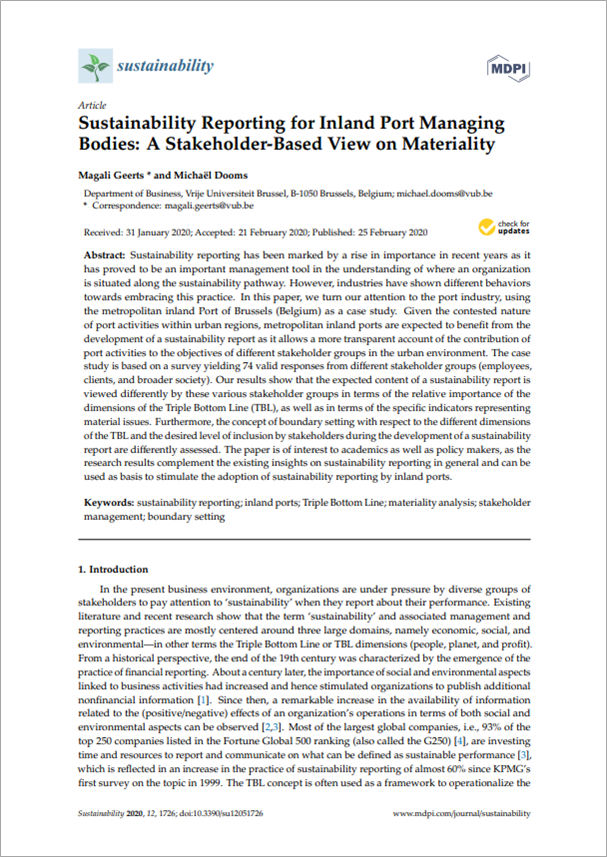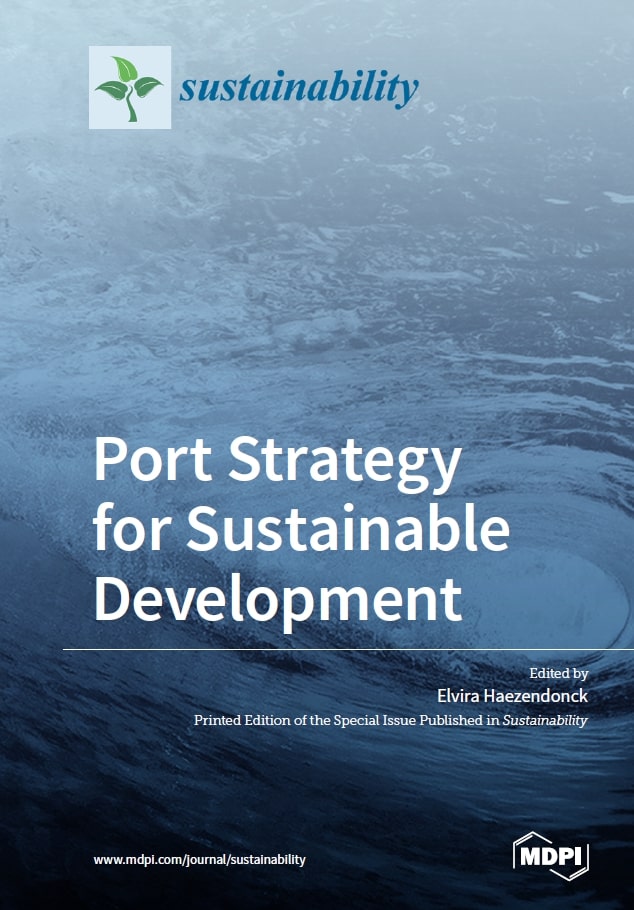Abstract
Sustainability reporting has been marked by a rise in importance in recent years as it has proved to be an important management tool in the understanding of where an organization is situated along the sustainability pathway. However, industries have shown different behaviors towards embracing this practice. In this paper, we turn our attention to the port industry, using the metropolitan inland Port of Brussels (Belgium) as a case study. Given the contested nature of port activities within urban regions, metropolitan inland ports are expected to benefit from the development of a sustainability report as it allows a more transparent account of the contribution of port activities to the objectives of different stakeholder groups in the urban environment. The case study is based on a survey yielding 74 valid responses from different stakeholder groups (employees, clients, and broader society). Our results show that the expected content of a sustainability report is viewed differently by these various stakeholder groups in terms of the relative importance of the dimensions of the Triple Bottom Line (TBL), as well as in terms of the specific indicators representing material issues. Furthermore, the concept of boundary setting with respect to the different dimensions of the TBL and the desired level of inclusion by stakeholders during the development of a sustainability report are differently assessed. The paper is of interest to academics as well as policy makers, as the research results complement the existing insights on sustainability reporting in general and can be used as basis to stimulate the adoption of sustainability reporting by inland ports.
Keywords: circular economy, monitor, indicator development, port, performance, sustainability
Cite as: Geerts, M., & Dooms, M. (2020). Sustainability Reporting for Inland Port Managing Bodies: A Stakeholder-Based
View on Materiality. Sustainability, 12(5), [1726]. https://doi.org/10.3390/su12051726

